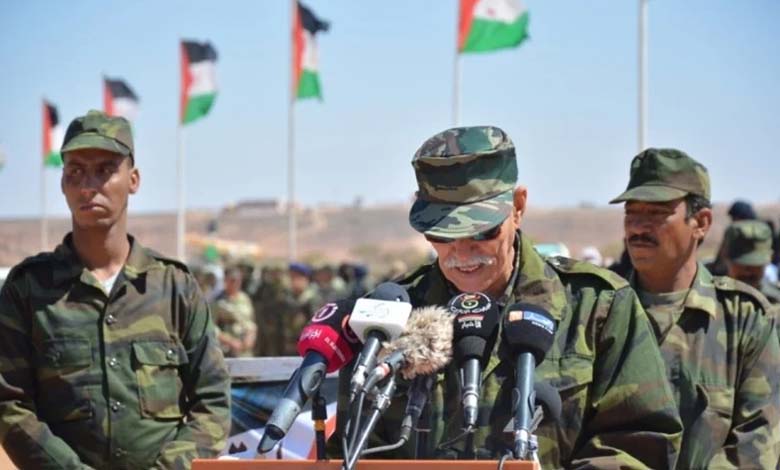Spanish security unveils Polisario’s ties to a human trafficking and smuggling network
The continuation of criminal activities and Polisario's involvement therein reveal the prevailing corruption within the camps and the political bankruptcy reached by the separatist front

Spanish security authorities have apprehended a network engaged in smuggling, human trafficking, and illegal migration. Its members operate between Spain, Algeria, the Tindouf camps, and Mauritania, comprising over 22 individuals led by a close associate of Polisario separatist leaders.
Investigations conducted by Spanish authorities revealed that a relative of a prominent Polisario leader, named Lahcen El Bouseri, exploited his seasonal work with the Spanish Red Cross. He was tasked with handling files received from the separatist front to facilitate migration to Spain by providing fake invitations or including their names in falsified medical files. Their presence in Spanish hospitals for treatment was then requested.
The Forum for Supporting Autonomy Advocates in the Tindouf camps, known as “Forsatin,” disclosed in a Facebook post that another network, overseen by a Polisario gang in the camps, coordinates with Algerian officials to authenticate visa-related documents and prepare medical files, facilitating visa acquisition for medical treatment purposes.
The investigations further revealed that visa recipients arrived in Spain via Madrid and Barcelona by air, while others arrived by sea in Valencia and Almería. Lahcen El Bouseri was tasked with receiving and accommodating them in institutions affiliated with the International Red Cross, exploiting associations linked to Polisario.
Spanish investigations indicated that the gang facilitated the exit of dozens of Sahrawis from within the camps, including close associates of Polisario leaders, Algerians from Tindouf, and Mauritanians posing as Sahrawis. They obtained visas and residency documents upon arrival through forged documents between 2017, 2018, and 2019.
The Spanish judge overseeing the case recommended stricter penalties for those involved, as their actions amount to human trafficking, a crime punishable by law and international agreements.
Ramadan Masoud, President of the Sahrawi Association for Human Rights Defense in Madrid, stated that “the head of this criminal network is a relative of one of the prominent leaders in the front and the right-hand man of the separatist leader Ibrahim Ghali.” He added that “the continuation of these criminal activities and Polisario‘s involvement therein actually exposes the prevailing corruption in the camps and the political and moral bankruptcy reached by this organization.”
Polisario employs a series of violations against the detained population in the Tindouf camps, recently uncovering child abduction crimes and their sale to Spanish families to inject money into their private accounts.
“Forsatin” revealed that Polisario leaders grant Spanish families the right to adopt girls from the camps, later seizing them during visits to their biological families, by orders of the specialized gang. They then blackmail the foreign adopting families to provide additional support in exchange for facilitating the return of the children to their embrace.
Files have been recorded for over 150 detained girls within the camps by Polisario leadership, who traffick children and blackmail Spanish families. The case of Sahrawi girl Filha Mint Shahid Mint Laaroussi created a wide uproar, as Polisario pressured her family to prevent her return to Spain, where she resides with a Spanish adoptive family.
The forum added that the Sahrawi girl’s biological family, under Polisario‘s orders, was forced to burn travel documents to prevent her permanent return and keep her confined in the camps. As the Spanish family sought to reclaim the girl, Polisario leadership intervened, facilitating the necessary permits for the girl’s smuggling from the camps to Oran, in preparation for her transfer to Spain, before the matter was exposed.
After the uproar caused by the smuggling of this girl, she was transferred to the Spanish consulate in Oran, where she was kept until a lawyer could accompany her to Spain. On the other hand, Algerian authorities attempt to return the girl to her biological family to avoid clashes between this family and the family of the abductor, Hamada Ould Saleh.
The forum affirmed that abduction networks operate within the camps under Polisario leadership, where brokers and smugglers abduct children from their families, receiving facilitations in mobility and permits to carry out the mission to appease foreign families and humanitarian associations for financial gains.
Examples were provided of kidnapping operations related to the girl’s file ‘known as Tyqa Hamda or Muralis De Matus, named after the Spanish host or adoptive family of the kidnapped, as well as the file of Embarak Salam and the Korean Badab Al-Hafiz and Najiba Mohamed Belqasim, and also the file of Mahjouba Hamdi Al-Daf, which sparked a major uprising within the Tindouf camps.
This isn’t the first time girls have been abducted in Tindouf, believed to be human trafficking operations conducted by gangs in collusion with Polisario leadership. Nor is it the first crime committed by separatist front gangs against the inhabitants of the camps, which have witnessed protests against repression and violations, successfully suppressed by force.
Sahrawi activists, who previously exposed Polisario‘s violations on social media, have been subject to arrest, torture, and arbitrary detention — practices revealed by forums opposing the separatist agenda, calling for liberating the unfortunate inhabitants of the camps from the terrorism and crimes of the separatist front.












